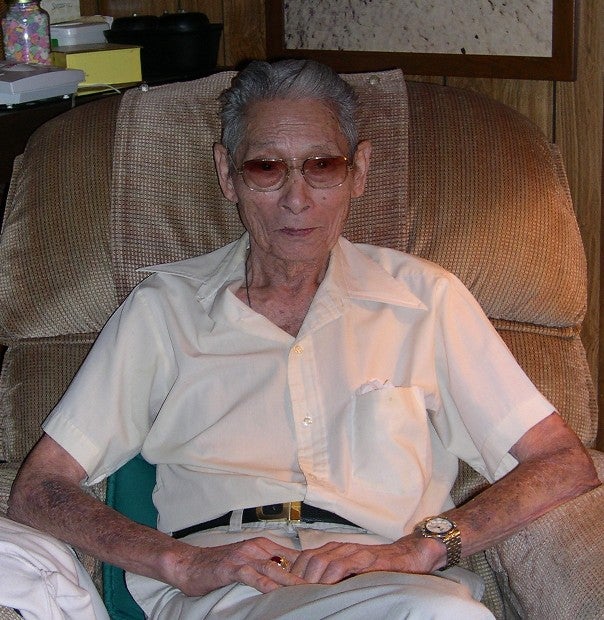Norman Yoichi Kishi During World War II

The 1940s were also nightmarish for Yoichi "Norman" Kishi, who was spared internment but had his own struggle with discrimination in the U.S. Army.
Unlike most Japanese-American soldiers who fought in the two Japanese-only units, Lt. Kishi was the only Japanese-American in his unit, the 3150th in India and Burma (now Myanmar).
Many Americans have heard of the famed 442nd Army Regimental Combat unit, a Japanese-American unit that served in Europe and was one of the most decorated units of its size.
But Kishi had troubles even before he went overseas. Kishi, a Texas A&M University graduate, worked at the Houston Ship Channel when the war broke out. After repeated incidents in which sailors threw heavy timbers at him from the top of their ships, he was fired. A short time later, he was called to serve and spent three troubled years as a signal officer in the Army.
"When I reported to my unit in Burma, the officers above me and a lot of the higher-ranking enlisted men came out and said they wouldn't serve with me," said Kishi, 80. "Of course, naturally, it didn't make me feel any too happy."
Despite the resistance, Kishi went on to become commander of the 800-soldier unit. Still, the war never got easier for him. He remembers the unique position he was in as a man of Japanese descent.
"Every time I saw a dead Japanese soldier, they looked familiar," he said. "Some of them might have been kin to me. Naturally, I felt a certain sorrow. But that's war."
He also cannot forget the sorrow of his family in Texas. He moved his relatives to a shack in the country to shield them from government surveillance.
"There were times I felt like the country wasn't worth serving," he said. The end of the war came not a minute too soon, and he remembers it like it was yesterday.
One night all the anti-aircraft guns starting shooting. At first, I thought we were under air attack, then the word got around and the war was over," he said. "I felt a personal relief. But I couldn't help but wonder how I would be received when I got home."
He did face discrimination, being denied at least one job because of his Japanese surname, but went on to a successful career as an engineer. He is now retired from the Texas Highway Department and lives in a Canyon Lake community with his wife.
Reference
Stefanie Asin, " V-J/PEACE, PROSPERITY AND PAIN/STIRRING MEMORIES/Relocation to internment camp was a nightmare for Japanese-American couple," Houston Chronicle (1995)
